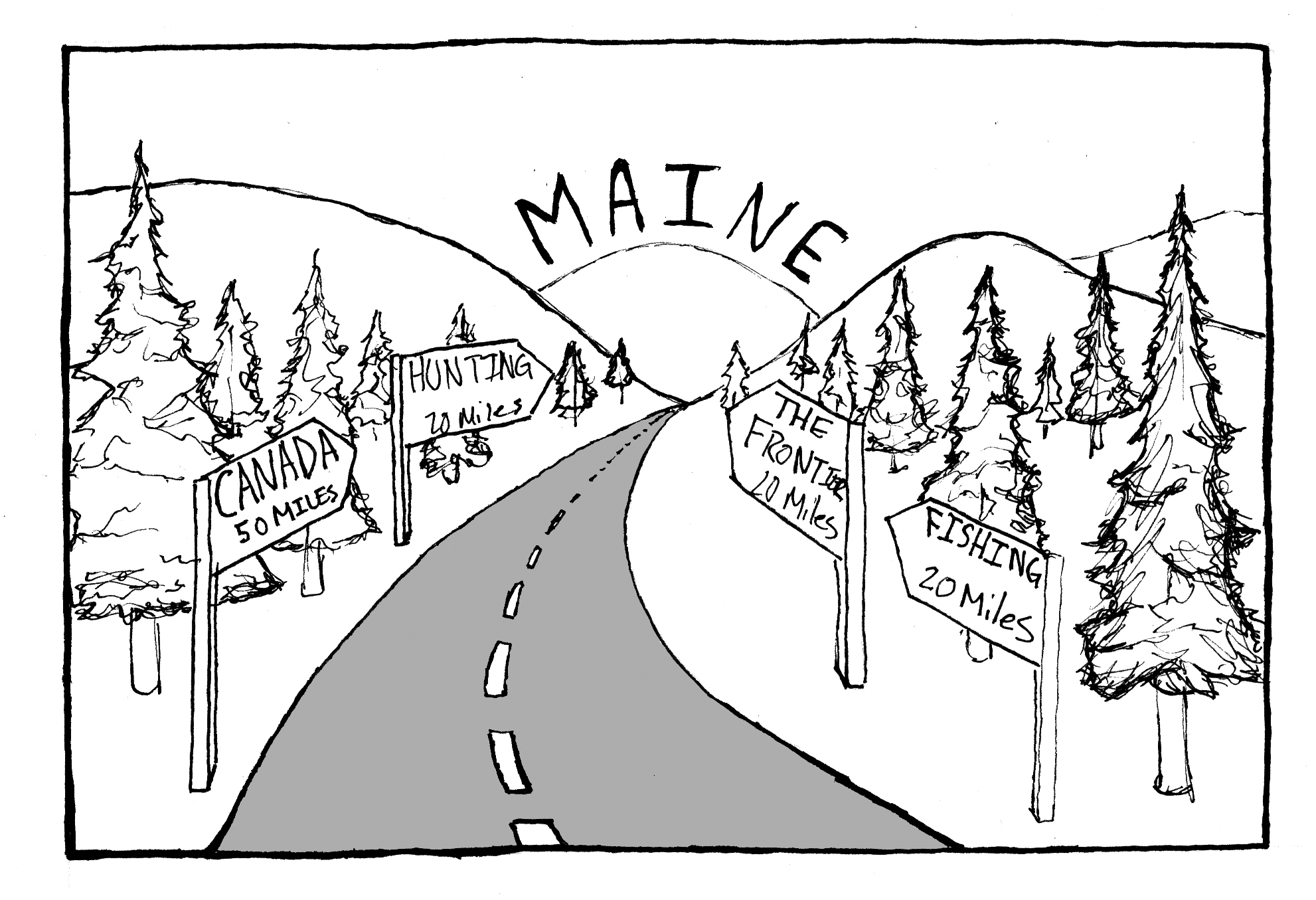Our home away from home: where does Maine fit in?
April 12, 2019
 This
piece represents the opinion of the author
.
This
piece represents the opinion of the author
.
In my two years at Bowdoin, I have thought about my home state more than ever before. Surrounded by people from different regions of the country and around the globe, I have the opportunity both to engage with diverse perspectives and to critically consider my own. Yet as I approach the end of this column, I find myself wondering: where does Maine belong in the world? What is it that makes us different or special? Though I’ve written much already about Maine’s culture, from Franco-Americans to skiing to tourism, I have not truly placed it in a broader context. Where do we fit in, if at all?
The answer lies in our history, geography and demography. Though Maine is often lumped in with the rest of the predominantly Democratic, urban and wealthy Northeast region, this classification is misguided at best. As I discussed in a previous column, the Pine Tree State has many different cultural regions—some majority liberal, some majority conservative—which do not align neatly with American notions of political and demographic divisions. While Portland sits on the periphery of the Northeast Megalopolis, an urban zone extending from Washington D.C. to Boston, it is hardly accurate to lump it and the rest of Maine in with metropolitan areas like New York or Philadelphia which have far more wealth and national influence. Although significant portions of Maine’s coast are populated by what might be called “coastal elites,” these people share the waterfront with seventh-generation working-class fishermen, something that is becoming increasingly uncommon along the crowded shores of the Atlantic Seaboard. Even if Maine is firmly within the geographic Northeast, it remains culturally separate.
Within New England, too, Maine occupies a unique space. It is larger, poorer and wilder than the other states in the region and is set apart by its stronger maritime tradition and independent attitude. Much of this is a result of its early history. The British Province of Maine was first settled by West Country Englishmen, not by East Anglicans as in Massachusetts, and these first immigrants brought with them a love of the sea and an Anglian tradition that divided them from their neighbors to the south. Subsequent waves of Scottish-Irish immigration, followed by settlers from Massachusetts and as far away as Sweden, contended with Maine’s unforgiving climate and soil and created a culture that was fiercely self-subsistent, anti-authoritarian and protective of the land. Though parts of New Hampshire and nearby Massachusetts and Vermont have similar cultures as certain areas of Maine, different groups and patterns of settlement have divided Maine from its peers.
We are also a frontier state, a place where an international border was not marked until the Webster-Ashburton Treaty of 1842. Maine’s proximity to Canada has exerted an important influence on its development, and in some ways, Maine shares more culture with its neighbors in the Canadian Maritimes than it does with any other region. Though Maine borders only one U.S. state, New Hampshire, it is bordered on three sides by three Canadian provinces: Québec, New Brunswick and Nova Scotia (by sea). Lobstering is as vibrant an industry here as it is in Nova Scotia and New Brunswick, and residents of the St. John River Valley on the northern border have long shared a common Acadian tradition. Immigration in both directions has also been common: several of my Maine ancestors had roots in New Brunswick and Prince Edward Island, and many other Mainers can say the same. Though a border divides us, Maine and Eastern Canada’s cultures and histories are thoroughly intertwined.
When we consider these conditions, it’s clear to see that Maine’s culture doesn’t belong to just one region or even one country. Though we are politically tied to the U.S. and historically tied to New England, the Pine Tree State straddles both regional and international boundaries. We are a borderland, a frontier that never fully closed, a territory that is defined but somehow resists definition. That’s not a bad thing. That’s precisely what makes us unique—and I wouldn’t have it any other way.
Comments
Before submitting a comment, please review our comment policy. Some key points from the policy:
- No hate speech, profanity, disrespectful or threatening comments.
- No personal attacks on reporters.
- Comments must be under 200 words.
- You are strongly encouraged to use a real name or identifier ("Class of '92").
- Any comments made with an email address that does not belong to you will get removed.


Just a brief note of Congratulations on an exceptional opinion piece, authored by Lowell Ruck, on our beloved Maine State of Maine.
Steve Chisholm ’81
The indigenous peoples of Maine would strongly disagree with your statement “The British Province of Maine was first settled by West Country Englishmen”
Hi Emily,
Thank you for your comment. If it wasn’t clear from my writing, I intended to say that the European settlers of Maine as we have come to know it (an inherently colonial construct) were from the West Country. The territory, Dawnland, has of course been inhabited for thousands of years by Wabanaki people – who I would hardly characterize as settlers, but rather long-term and rightful inhabitants of the land.
In this and other writings about Maine culture, I admittedly focus on the settler-colonial context and perspective, but I do not mean this to deny the existence of the Wabanaki. Perhaps this article, though limited by space, might have done more to address their role in the development of our culture.
Lowell
Great column – I’m in the middle of “The Lobster Coast” by Colin Woodard – which I highly recommend.
I remember going out to Bailey’s Island and going into the general store about 6AM during the winter while the lobstermen were drinking coffee and talking. Priceless.